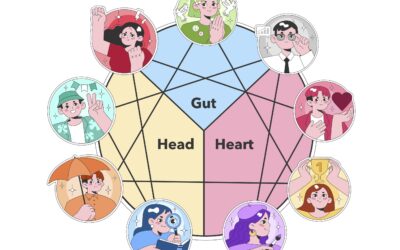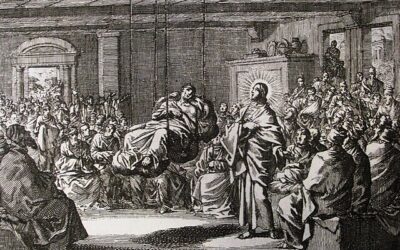by Lisa A. Smith
WHAT IS YOUR EARLIEST MEMORY OF MONEY? My earliest memory of money was trying to earn it. My brother and I would collect empty aluminum cans from parks or along roadsides and take them to the redemption center. After lining up sticky, smelly cans in flats, we would emerge, triumphant, with a dollar or so. In Iowa, where I grew up, every can was worth a nickel. I dreamed of gathering a trunkful of cans and driving to Michigan. Those lucky ducks got a whole dime per can! It did not occur to me that it wouldn’t be worth the gas money. So my first memory of money was hustling to get it, wanting more. But another early money memory coexists with the can-collecting frenzy: putting coins in the offering plate at church.
Every Sunday, from our usual pew (pulpit side, second row from the back), I would watch my mom place a check in the plate. Because I wanted to put something in the plate too, I would dig through her coin purse for quarters. In retrospect, I could have offered part of my aluminum can money instead of raiding her wallet!
Early on, I learned that it was important to get money and to give it. Some money messages my parents gave me were explicit: Work hard. Save money. Avoid frivolous or impulse buys. Other money messages were implicit. My parents didn’t discuss how they made giving decisions or how money made them feel. But children learn from what we as parents do, often regardless of what we say.
When my oldest child was about 5, I labeled three Mason jars with duct tape: Spend. Share. Save. I’d seen this idea somewhere and it worked for a while. My son earned money for doing “extra” chores (not for the regular ones) and divvied up the money among the three jars. But after a time, I noted that the money moved around a bit. The “share” jar looked sparse and the “spend” jar was flush. When I asked my son about it, he said he was saving up to buy LEGO. He’d learned to hustle too.
The idea of giving had become less compelling. There’s nothing wrong with working hard or hustling. My husband and I have taught our children the value of hard work and saving. But there’s another side of money that I want them to know, to feel deep in their heart or maybe their gut. I want them to know that the hustle only takes you so far. The giving is what makes you whole.
As for me, I attended a nonprofit fundraising seminar where we had to practice asking each other for $10,000. Give the pitch, make the ask, field the questions, get to the yes. It was fun and a bit silly, until my turn came to be on the receiving end. When I was asked, I suddenly imagined what it would feel like to give away $10,000—a ridiculous sum in my real life of young kids, a mortgage and student loan debt.
Yet even in simulation, the feeling of giving that much away felt like freedom. I wish I could tell you that I went home and my husband and I found a way to give away a huge sum of money. Not yet. But soon after this experience, we set up planned gifts in our will. In the coming years, I hope to increase the amounts. Every time I think about this, it feels good. That really says something because those gifts require me to die.
Perhaps that’s true for any gift worth giving: There is a cost. In the Gospel of John, Jesus says, “Unless a grain of wheat falls into the earth and dies, it remains just a single grain; but if it dies, it bears much fruit.” Then he goes on to say: “Those who love their life lose it (12:24-25).” This is true for our selves, our time and our possessions, as stated in an offering prayer in Evangelical Lutheran Worship (p. 107). In giving, even sacrificial giving that aligns with our deepest values, we find life. We give because God asks us to, of course. But we also give because it nourishes and delights us, releases us and makes us more whole.
All of this is a bit esoteric for my lower-elementary- age kids, who at present are laser-focused on saving for an elaborate LEGO police station set. I’m told it comes with a helicopter. I continue to wonder how I can best show them the joy of giving. They do put their own coins into the offering plates at church and the giving jar at home, but it’s rote, and sometimes they complain. When I asked them to donate some of their toys to Goodwill, they balked.
So I worry whether they’ll grow up to be generous. But then one kid wraps up dollar bills to give to other family members at Christmas. And then the other gives away a favorite stuffed animal to his brother and seems proud of himself. So maybe it will be OK. I can trust that God will use what I do and what I say to my children. God can use it all, even the hustle, as together we learn the joy of giving.
The Rev. Lisa A. Smith is an ELCA pastor who loves exploring the wilderness near her Northwest U.S. home. She blogs at pastorlisawrites.com.
This article is excerpted from the September/October 2022 issue of Gather magazine. To read more like it, subscribe to Gather.
A priceless gift
In 1993, my husband and I moved from Southern California where I’d grown up to Berkeley, where I...
In the image of God
If you were to attend Sunday service at Holly Grove Lutheran Church in Lexington, North Carolina,...
Faith in economics
What is the rule of your household? How do you manage your home? How do you make sure that...





